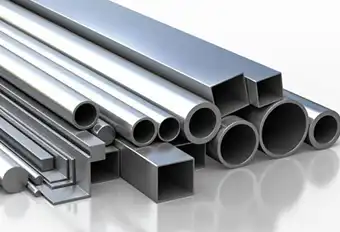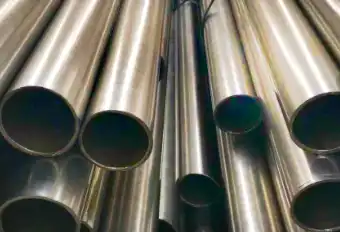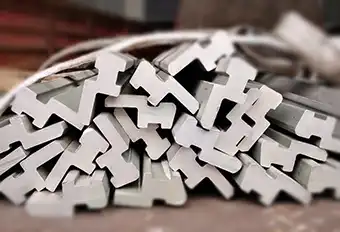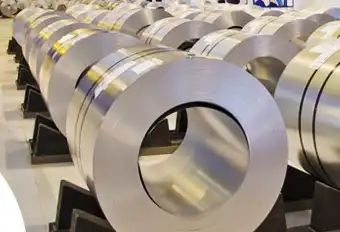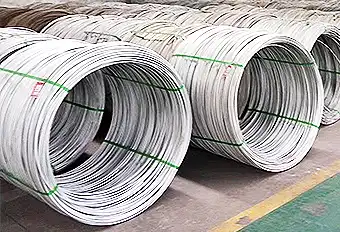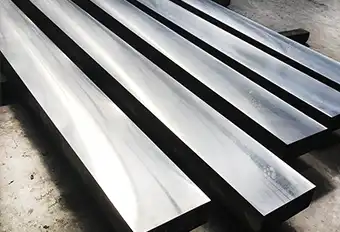Ti6Al2Sn4Zr2Mo Ti Alloy
Our advantages
Ti6Al2Sn4Zr2Mo properties and heat treatment forged piece, Including Ti6Al2Sn4Zr2Mo application and specifications, We have all specifications,Including Ti6Al2Sn4Zr2Mo steel plate, Ti6Al2Sn4Zr2Mo sheet, Ti6Al2Sn4Zr2Mo square steel, Ti6Al2Sn4Zr2Mo flat bar,Ti6Al2Sn4Zr2Mo round bar,Ti6Al2Sn4Zr2Mo forgings, we can own production and sales.
Introduction to Our Products:
Specialized high quality steel
We have the advantages of equipment, technologies and price
forged/hot rolling/ extrusion of steel
We can produce the Ti6Al2Sn4Zr2Mo has the following specifications:
Round bar steel: 1mm to 3000mm
Square-shape steel: 1mm to 2000mm
Plate steel:0.1mm to 2500mm
Width: 10mm to 2500mm
Lenth: We can supply any lenth based on the customer's requirement.
Forging: Shafts with flanks/pipes/tubes/slugs/donuts/cubes/other shapes
Tubings: OD: φ6-219 mm, with wall thickness ranging from 1-35 mm.
Finished goods condition: hot forging/hot rolling + annealing/normalizing + tempering/quenching + tempering/any conditions based on the customer's requirement
Surface conditions: scaled (hot working finish)/ground/rough machining/fine machining/based on the customer's requirement
Furnaces for metallurgical processing: electrode arc + LF/VD/VOD/ESR/Vacuum consumable electrode.
Ultrasonic inspection: 100% ultrasonic inspection for any inperfections or based on the customer's requirementExcellent service for all kinds of industries,with advantages of technologies, equipment and price.
We serve you with our honesty, integrity, and professionality.
Chemical composition % of the ladle analysis of grade Ti6Al2Sn4Zr2Mo and Standards
Titanium Ti-6Al-2Sn-4Zr-2Mo (Ti-6-2-4-2), Duplex Annealed
Categories: Metal; Nonferrous Metal; Titanium Alloy; Alpha/Near Alpha Titanium Alloy
Material Notes: Alpha Alloy. Silicon is often added to improve creep resistance (See Ti-6242S).
Applications: High-temp jet engines. Blades, discs, spacers, seals. High performance automotive valves.
1 other Heat Treatment of this alloy is in MatWeb.
Key Words: Ti6Al2Sn4Zr2Mo, Ti-6242; Ti-6-2-4-2; UNS R54620
| Physical Properties | Metric | English | Comments |
|---|---|---|---|
| Density | 4.54 g/cc | 0.164 lb/in³ | |
| Mechanical Properties | Metric | English | Comments |
| Hardness, Brinell | 304 | 304 | Estimated from Rockwell C. |
| Hardness, Knoop | 330 | 330 | Estimated from Rockwell C. |
| Hardness, Rockwell C | 32 | 32 | |
| Hardness, Vickers | 318 | 318 | Estimated from Rockwell C. |
| Tensile Strength, Ultimate | 940 MPa | 136000 psi | |
| Tensile Strength, Yield | 860 MPa | 125000 psi | |
| Elongation at Break | 15.0 % | 15.0 % | |
| Modulus of Elasticity | 113.8 GPa | 16510 ksi | |
| Compressive Yield Strength | 1070 MPa | 155000 psi | |
| Notched Tensile Strength | 1170 MPa | 170000 psi | Kt (stress concentration factor) = 3.0 |
| Ultimate Bearing Strength | 2000 MPa | 290000 psi | e/D = 2 |
| Bearing Yield Strength | 1620 MPa | 235000 psi | e/D = 2 |
| Poissons Ratio | 0.320 | 0.320 | |
| Charpy Impact | 20.0 J | 14.8 ft-lb | V-notch |
| Fatigue Strength |
280 MPa @# of Cycles 1.00e+7 |
40600 psi @# of Cycles 1.00e+7 |
Kt (stress concentration factor) = 3.0 |
|
480 MPa @# of Cycles 1.00e+7 |
69600 psi @# of Cycles 1.00e+7 |
unnotched | |
| Shear Modulus | 43.1 GPa | 6250 ksi | Calculated |
| Shear Strength | 660 MPa | 95700 psi | Ultimate shear strength |
| Electrical Properties | Metric | English | Comments |
| Electrical Resistivity | 0.000190 ohm-cm | 0.000190 ohm-cm | |
| Thermal Properties | Metric | English | Comments |
| CTE, linear |
7.70 µm/m-°C @Temperature 20.0 - 100 °C |
4.28 µin/in-°F @Temperature 68.0 - 212 °F |
|
|
8.10 µm/m-°C @Temperature 20.0 - 315 °C |
4.50 µin/in-°F @Temperature 68.0 - 599 °F |
average | |
|
8.10 µm/m-°C @Temperature 20.0 - 540 °C |
4.50 µin/in-°F @Temperature 68.0 - 1000 °F |
average | |
| Specific Heat Capacity | 0.460 J/g-°C | 0.110 BTU/lb-°F | |
| Thermal Conductivity | 7.10 W/m-K | 49.3 BTU-in/hr-ft²-°F | |
| Melting Point | <= 1700 °C | <= 3090 °F | Liquidus; Estimated from similar materials |
| Liquidus | 1700 °C | 3090 °F | Estimated from similar materials |
| Beta Transus | 990 °C | 1810 °F | |
| Component Elements Properties | Metric | English | Comments |
| Aluminum, Al | 6.0 % | 6.0 % | |
| Molybdenum, Mo | 2.0 % | 2.0 % | |
| Tin, Sn | 2.0 % | 2.0 % | |
| Titanium, Ti | 86.0 % | 86.0 % | |
| Zirconium, Zr | 4.0 % | 4.0 % | |
Users viewing this material also viewed the following:
Titanium Ti-6Al-2Sn-4Zr-2Mo (Ti-6-2-4-2), Sheet
Titanium Ti-6Al-2Sn-4Zr-2Mo-0.1Si; Duplex Annealed
Allvac® 6-2-4-2 Titanium Alloy, Heat Treatment: 982°C (1800°F) + Age
Titanium Ti-6Al-4V (Grade 5), Annealed
Titanium Ti-6Al-2Nb-1Ta-0.8Mo (Ti-621/0.8), Alpha-Annealed
MTA641 / 14132
Machining performance
Download Ti6Al2Sn4Zr2Mo the mechanical properties of the report, the report provides detailed performance analysis and application. Download >>
Principal Design Features
One of the most widely used precipitation hardening grades in the business. While soft and ductile in the solution annealed condition, it is capable of high properties with a single precipitation or aging treatment. Characterized by good corrosion resistance, high harness, toughness and strength.
Machinability
Long, gummy chips characterize this alloys machinability. It can be machined in the annealed condition, however condition H1150M will yield best results. Post machining solution treatment of parts will be required prior to final hardening if machining in this condition.
Heat Treatment
CONDITION A--Soak at 1900 F (1038 C) for 30 minutes and cool below 60 F (16 C) for complete martensite transformation. CONDITION H 950- Treat Condition A material at 900 F(482 C) for 1 hour, air cool.. CONDITION H925, H1025, H1075, H1100, H1150- Soak solution treated material for 4 hours at specified temperature, air cool, CONDITION H1150M- Soak solution treated material at 1400 F (760 C) for 2 hours, air cool, then re-heat to 1150 F (620 C) for 4 hours and air cool.
Welding
Successfully welded by common fusion and resistance methods, this alloy should not be joined by oxyacetylene welding. AWS E/ER630 filler metal is recommended if required.
Forging
Soak for 1 hour at 2150 F (1177 C) prior to forging. Do not work below 1850 F (1010 C). Post-work solution treatment is required prior to final hardening.

